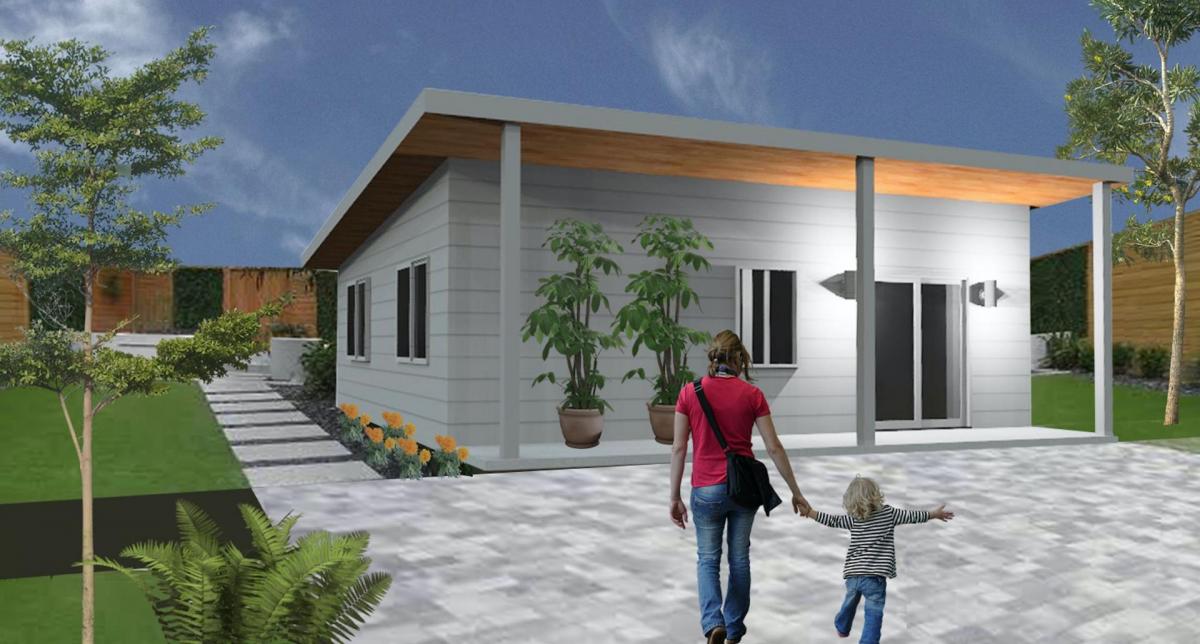Encinitas Retools Planning to Increase Housing Options
The City of Encinitas won the Award for Excellence in the Housing Programs and Innovations category of the 2019 Helen Putnam Award for Excellence program. For more about the award program, visit www.helenputnam.org.
Like many communities in California, the City of Encinitas (pop. 63,390) needed more housing for its families and workers, but the coastal city had very little undeveloped land, and new construction wasn’t keeping up with demand. Because the available space was so limited, the city focused on infill housing as a crucial part of its efforts to support a diverse housing supply.
To encourage the creation of infill housing, the city worked to make it easier for property owners to add accessory dwelling units (ADUs), also known as granny flats. ADUs give families more flexibility in their living arrangements, as additional family members, caregivers, or others can live on-site, and also provide the opportunity for rental income. The size of ADUs is conducive to multigenerational living and provides options for families to grow and age in place. As rental units, ADUs help diversify housing options in the community, and the rental income helps owners offset their housing costs.
As city leaders turned their attention to ADUs, they recognized that Encinitas would have to rethink its existing zoning ordinances and development standards. Because much of the city was developed with small urban and suburban lots, the existing ordinances and standards limited opportunities for property owners to add ADUs.
Making Changes to Overcome Constraints
In its efforts to encourage ADU development, Encinitas faced two major constraints.
First, many property owners with existing but unpermitted ADUs were unable to get their units permitted because complying with existing development standards typically involved substantial costs and/or extensive reconstruction. To address this issue, the city successfully sponsored SB 1226 (Chapter 1010, Statutes of 2018) with Sen. Patricia Bates (R-Laguna Niguel). The legislation provides flexibility in legalizing existing unpermitted dwelling units by allowing jurisdictions to apply the building code that was in effect in the year of construction instead of using the current code.
“Accessory dwelling units can help with our housing shortage right now,” said Sen. Bates. “It would be unfortunate to have property owners lose their granny flats even though the units may be safe.”
“Encinitas is proud to have worked with Sen. Bates to pass this important piece of legislation, which gives the city another tool to permit more of our ADUs,” said Encinitas Mayor Catherine Blakespear. “We are grateful for the collaboration — and the shared vision — to provide safe and permitted homes for our residents.”
The second constraint related to encouraging more ADU development was the high cost of designing and building a unit. For this reason, the city waived its permit fees and developed a series of eight preapproved ADU building plans and a how-to guide to assist property owners with the planning and construction process. Using a preapproved plan to build an ADU eases the burden on property owners — it saves money, reduces uncertainty, streamlines the process, and can reduce the design and processing time by up to six months.
The city launched a program called Housing for Generations to help educate the community about the preapproved ADU building plans and offer assistance in navigating the process. A series of informational meetings gave residents opportunities to ask questions and explore options.
Program Has a Positive Impact on Housing Supply
In 2012, the City of Encinitas was permitting fewer than 10 ADUs a year. In 2018, in conjunction with the successful passage of SB 1226, Encinitas adopted a new ADU ordinance that provided relief from multiple restrictive zoning standards to encourage construction. The city followed up with additional changes to local regulations, and by the end of 2019, Encinitas was issuing permits for more than 150 units per year.
“Every city needs to do its part to address the housing affordability crisis that is leading to more families facing housing insecurity and homelessness, and more residents working farther from their jobs. ADUs are a key part of our solution,” said Mayor Blakespear. “Our three-part effort — waive fees, loosen permitting restrictions, and provide preapproved plans — has already shown measurable success. I could not be more proud of our dedicated team effort and the results we are achieving.”
Encinitas City Manager Karen Brust believes that this program to encourage more affordable housing will benefit the city’s residents and future generations for many years to come. “The Housing for Generations program demonstrates our commitment to creating innovative ways for families of all income levels to live here,” said Brust.
Contact: Geoffrey Plagemann, associate planner, Development Services Department, City of Encinitas; phone: (760) 633-2703; email: gplagemann@encinitasca.gov.
Related Resources
Accessory Dwelling Units Help Increase Housing Supply
Photo Credit: Courtesy of the City of Encinitas





